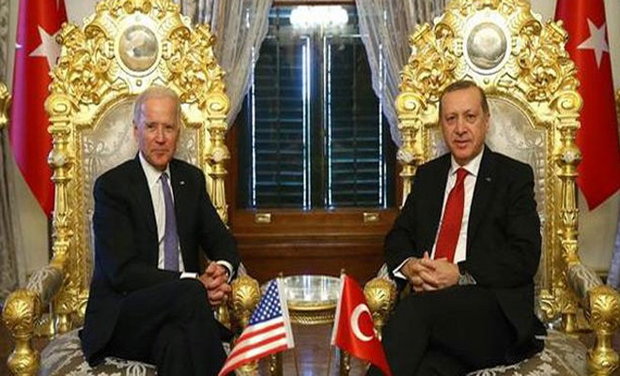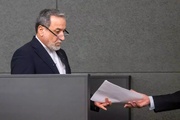In a surprise move late August, Turkey launched a military operation dubbed “Euphrates Shield”, the aim of which was claimed to be liberation of northern Syrian city of Jarablus from ISIL. Preventing new flows of migration and delivering aid to civilians were also announced by Turkish officials as aims of the operation, which was lunched under air support of US-led coalition, albeit despite the will of Syrian government who called it “blatant violation of sovereignty”.
Yet the act seemed reasonable as on August 22, after a suicide bombing attack in a wedding party in the Gaziantep left over 54 people dead, Turkish military launched strikes against ISIL shelling targets near Jarablus and north of Manbij announcing that the strikes are aimed at opening a corridor for an operation. "Daesh should be completely cleansed from our borders and we are ready to do what it takes for that," Turkish Foreign Minister Mevlut Cavusoglu said during a news conference after the Gaziantep attack.
Turkey’s President Erdogan also stated that the aim of the “Operation Euphrates Shield” is to eliminate threats from ISIL and Kurds later on August 24; "we started a military operation in northern Syria at 4 a.m. this morning, aimed at eliminating the threats posed by Daesh and Syrian Kurds," He said, adding that Turkey is trying to put an end to attacks on Turkish terrotory from neighboring Syrian regions.
Not surprisingly, the very first warning came from a Kurdish body, The Kurdish Democratic Union Party (PYD), demanding the immediate withdrawal of Turkish forces; “Turkey is trying to turn its indirect occupation of Syria into a direct one, we demand that Turkey immediately withdraws from territory of Syria, stops supporting terrorist groups in Syria, otherwise we will force them out of our territory," said a PYD representative, Sputnik reported.
Ankara, then, put it clearly; “PYD, YPG and among them these democratic forces have to go beyond Euphrates to the eastern part… [otherwise] we are going to do what we need to do, and we will not allow them to realize their secret agendas," Turkish Foreign Minister Mevlut Cavusoglu warned on Wednesday.
Hitting Kurdish forces in Syria, who are backed by US unconditionally, was considered as a response to US’ refusal to extradite Fethullah Gülen, whom Erdogan blames for the failed coup of July 15. Discontent by US’ response to the coup and receiving negative pulses from its other NATO allies in European Union, Turkey made a return first to Russia and then to Iran, who supported the country massively after the coup. The most notable shift, however, maybe was the shift in Turkey’s position over President Assad. Erdogan, previously, had repeatedly refused to negotiate with Syrian president. Yet, it was after his visit with Russian President Vladimir Putin early August that in a statement Turkish Prime Minister Binali Yildrim said “there may be talks [with Assad] for the transition.”
In line with all these concerns, US Vice President Joe Biden arrived in Ankara only hours after “Operation Euphrates Shield” was launched. Although much was not revealed of Biden’s meetings in Ankara, it was clear that Ankara’s U-turn in foreign policy was the major concern for US, while Turkey’s was the reason behind the lack of support from Western allies after the coup.
Biden also tried to restore the lost trust of Turkish government and nation after the coup; "We express in no uncertain terms the continuing, unwavering support of the United States for Turkey in the wake of last month's attempted coup,” he said in his joint press conference with Prime Minister Yildrim, adding in another part of his remarks, “but we are also awed by the bravery of the Turkish people, who literally stood in front of tanks, some actually ran over by those tanks, to defend your democracy.”
"I understand the intense feeling your government and the people of Turkey have about [Gulen]. We are cooperating… with Turkish authorities, our legal experts are working right now with their Turkish counterparts on the production of and evaluation of the material and evidence," Biden said noting that legal procedure must be followed by both sides.
Yet, Ankara seemed closer to its goals when Yildrim and Biden announced that they reached an agreement that forces of the Kurdish Democratic Union Party (PYD) and Kurdish People's Protection Units (YPG) must not move to the west of Euphrates river if they don’t want to lose US support. Ankara, further, asked Washington to review its stance on the two Kurdish organizations and to recognize them as terrorist groups.
On the other hand, both Russia and Iran expressed concern on Turkey’s operation in Syria. “Moscow is deeply concerned about what is happening in the Syrian-Turkish border area,” Russian Foreign Ministry said, adding that further degradation in the conflict zone and the prospect of Kurdish-Arab ethnic conflict raises alarm, according to Sputnik.
“We are convinced that the Syrian crisis can be resolved only on the solid basis of international law, through broad intra-Syrian dialogue with the participation of all ethnic and religious groups, including Kurds, and on the basis of the June 30, 2012, Geneva Communique, Resolution 2254 and other UN Security Council resolutions adopted on the initiative of the International Syria Support Group,” the ministry stressed.
Iran’s Foreign Ministry Spokesman, Bahram Ghasemi, also voiced concern on Turkey’s military operation; “Turkish presence on Syrian soil will lead to further complication of the situation in the region,” said Ghasemi. “Adopting approaches that defy the political authority of a country's central government is not acceptable," he continued.
Turkey’s military operation, at first glance, may seem promising with regards to fight against terrorism and the trilateral cooperation of Ankara-Moscow-Tehran, yet that would be simplistic to ignore the existing facts in Turkey’s foreign policy and its unconditional support for terrorism in the region. Turkish government, led by Recep Tayyip Erdogan, has been seeking ouster of President Bashar Assad since the onset of crisis in Syria and had not spared any effort to reach the aim including backing different terrorist groups like ISIL and al-Nusra Front (renamed Jabhat Fateh al-Sham). Ankara, meanwhile, has long been an important NATO ally for Washington in the region, notably for providing airbase for US airstrikes in the Middle East, among them the strategic Incirlik Air Base. Further, Turkey has been in a frustrating clash with Kurds in the region, considering them a threat to its territorial integrity.
Some analysts, optimistically, argue that the significant U-turn by Erdogan was a sign of his flexibility and pragmatism after he noticed how his strategies in the region are boomeranging on his nation and government. They argue that Turkey was suffering from insecurity and its citizens have been regularly threatened by terrorists, whose flow to region in general, and Syria in particular, was authorized by Turkish government through borders. In addition, economic, energy and particularly political and military issues made restrictions, preventing Ankara from full breakup of ties with Moscow and Tehran. Erdogan knows that further cooperation with Iran and Russia means more guarantee from EU and US, analysts say. On the other hand, and in a broader outlook, the trilateral cooperation of Turkey-Russia-Iran could strengthen the role of all three countries in the region, weakening the influence of EU and US and putting pressure on their allies like Saudi Arabia and lead to a review of strategies by West.
Still, from the more realistic point of view, the recent developments are not in favor of countering terrorism in Syria or supporting its government. The Turkish incursion into Syrian territory, air-covered by US warplanes, could be considered gaining control on a Syrian town and installing proxy forces. Ankara has already announced that it wants to establish a “safe zone” along the Syrian side of the border stretching 100 kilometers and 30 kilometers deep. No-fly zone, under any interpretation, is equal to war and is considered an obvious military assault against the target country's sovereignty. This would be the second safe zone as Pentagon issued a warning last week that Syrian and Russian aircrafts approaching Hasakah in eastern Syria would be shoot down by US warplanes. Establishing buffer zones in Syria is not a new idea however, and it was agreed upon in July 2015. The safe haven was designed to span from the Turkish borderline into Syria. Extended from Azaz in the West to Jarablus in the East and as far south as al-Bab, the zone was planned to extend to the doorstep of Aleppo, the most strategic town for both fighting parties in Syria. The zone then would facilitate weaponing and supplying of the terrorists and would provide them a safe corridor to the heart of Syria.
Turkey, the invisible hand of NATO in the Middle East, has no intention of fighting terrorism clearly. In fact, Ankara killed two birds with one stone, or better say, many birds with one stone under the pretext of recent operation. Ankara cleared its borders from Kurdish forces and gained the control of border town of Jarablus under the US support with a false flag operation and is establishing a buffer zone, which it was struggling for since 2012. In a broader picture, however, this means more NATO and US influence in Syria and region and failure of political solutions for the Syrian crisis, and therefore paving the way for the ultimate goal; regime change in Syria.
Parnaz Talebi has done her MA in North American Studies in Faculty of World Studies, University of Tehran.


























Your Comment